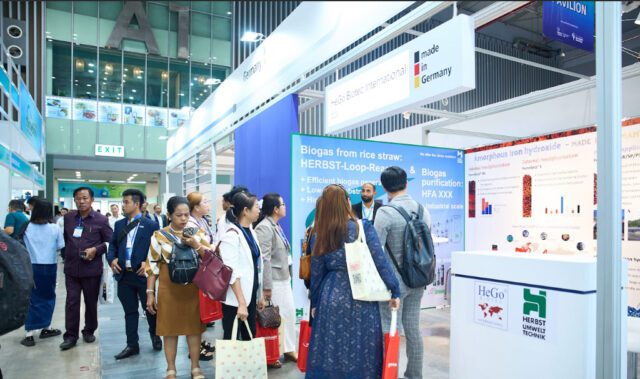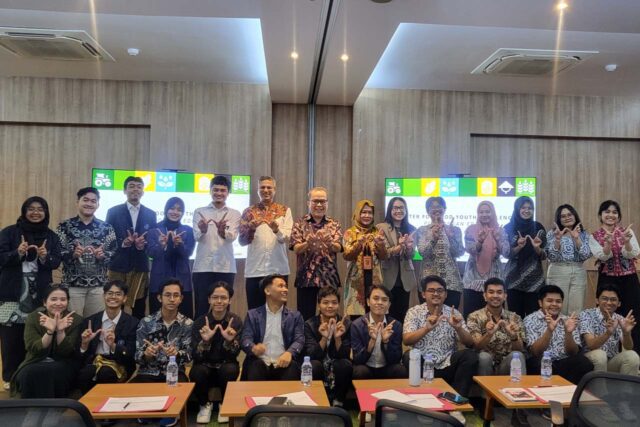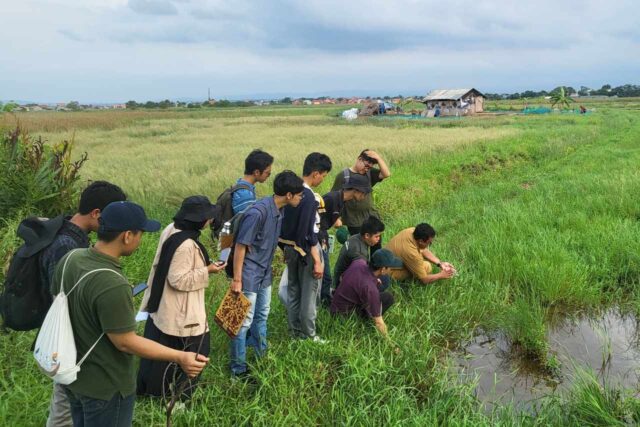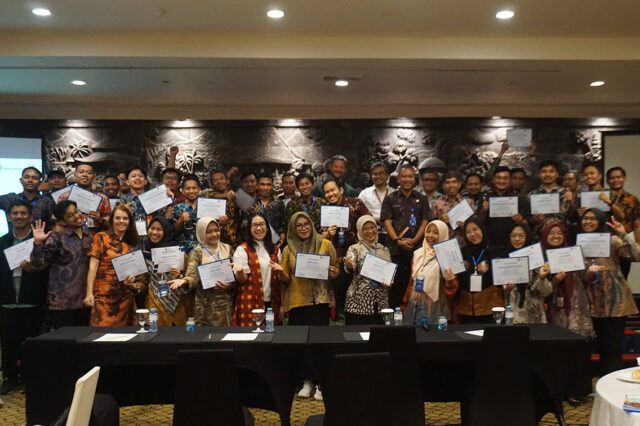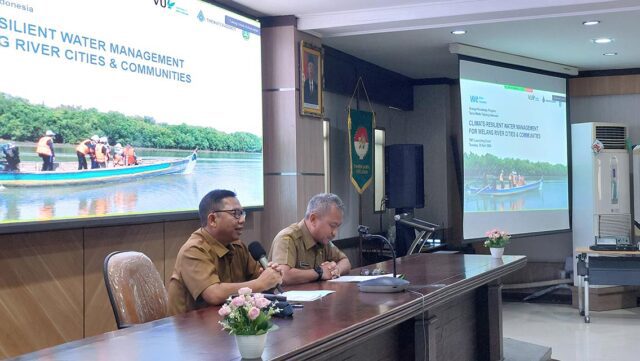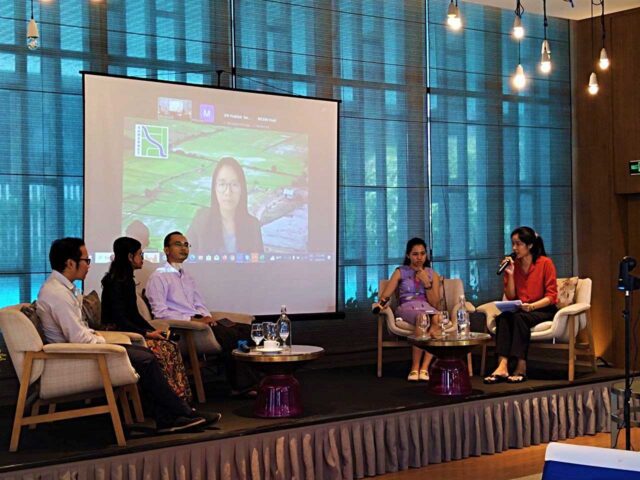What the Challenge is about
Indonesia Healthy Rivers Challenge 2020 is our capacity-building program that challenges and inspires Indonesia’s Young River Leaders to contribute their own original ideas and solutions towards the sustainable development of river basins.
In this first edition, the Challenge took place in the Welang River, East Java, where it suffered from a number of water-related problems, many of these problems were caused by man-made disturbances in the river catchment area.
Phase III of Indonesia Healthy Rivers Challenge 2020: The Final Battle
After five months of fun and educative learning, Indonesia Healthy Rivers Challenge 2020 eventually came to its final phase. Following Phase I in November 2020 with a field visit and Phase II from November 2020 to March 2021 with online mentoring session activities, all the five teams were about to present their grand designs about their solutions for the Welang River.
Phase III of the Challenge was held on 15-18 March 2021 in Pasuruan, East Java with the main agenda of final presentation from the incredible teams and then, winner announcement.
Day 1
To begin the first day of Phase III, an opening speech was delivered by our representative, Mr. Rangga Rishar. Thereafter, all the five teams straight away went for group discussion with their mentors to finalize their designs and came up with banners in Bahasa and English to promote their ideas as the solution for the Welang River. They also used this time to put their magical finishing touch on their presentation and do the rehearsal to deliver their ideas perfectly in front of the mentors and experts.
Day 2
After a long journey of identifying problems, brewing ideas and multiple mentoring sessions, finally, our Young River Leaders were ready to present their grand designs. This final presentation was attended by experts and guests, both present in Pasuran and joined online from the Netherlands. Each team was given 20 minutes to pitch their ideas that followed by a Q&A session where the experts took turns to ask questions and gave constructive inputs. With that being said, what did each team come to offer?
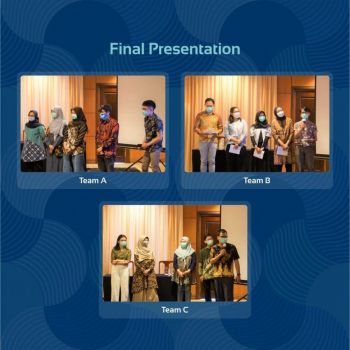
Team A: Welang Gemilang
Going for a comprehensive master plan for inclusive river resiliency, Team A Welang Gemilang proposed their ideas that consisted of three main concept strategies: agroforestry, eco-kampung and verion wall. As for the agroforestry, they planned to use 100 ha of land for reforestation with productive plants upstream. While in the midstream area, the Eco-Kampung program could reach an agropolitan development, expecting an increased number of both harvest and tourist visits. Last but not least, the verion wall was planned to be built for slope erosion prevention, run-off velocity reduction and a new income opportunity.
Team B: Asik Mantab
One of Team B Asik Mantab’s highlighted concept was Disaster Trading. Disaster Trading applied environmental valuation to predict the impact of human activities and also provided a balance investment pattern for the upstream, midstream and downstream of the Welang Watershed. Alongside that, Team B Asik Mantab also paid attention to adequate space for water: space was embedded in the environment and implemented in several options that would bring added value to the many aspects such as economy, social, climate and environment.
Team C: Welang Sehat Lima Sempurna
Putting forward three concept strategies which were river dredging, integrated water resource management and integrated waste management, Team C Welang Sehat Lima Sempurna had the vision to transform the Welang Watershed into a healthy watershed. There were five pillars of the C-mile version that the team meant to fulfil: resilient, clean and healthy, society-empowered, culture value and technology approach.
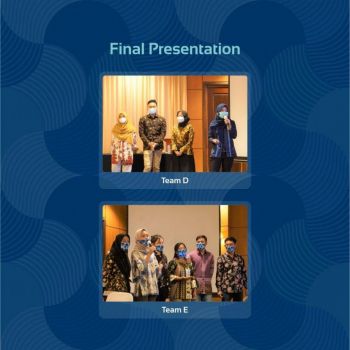
Team D: Wayahe Welang Waras
For solving the problems of the flood, unprocessed waste, sedimentation and community development, Team D Wayahe Welang Waras provided some ideas with a 10 year-long action plan for the Welang Watershed. The plan was to build a retention pond, sediment trap from bamboo, integrated waste management, communal wastewater treatment plant, rainwater harvesting, debris boom, biopore and recharge well. Team D Wayahe Welang Waras also proposed some non-structural solutions such as Welang-Weling: a digital platform for Water Management and Flood Mitigation, as well as Pasuruan Prigel: a community development that focused on waste management.
Team E: Welang Apik
Team E Welang Apik submitted solutions for each part from upstream to downstream. As an effort of integrated development, Team E Welang Apik introduced Pro Apik Movements consisting of Pro Apik Hijau (replanting mangroves and riparian zone), Pro Apik Bersih (cleaning the Welang River from waste) and Pro Apik Juara (challenging villages to clean and develop Welang River environment). They also came up with the idea of the Welang Apik mobile application where it would facilitate local communities to collaborate, increase the awareness and economy aspect of local communities.
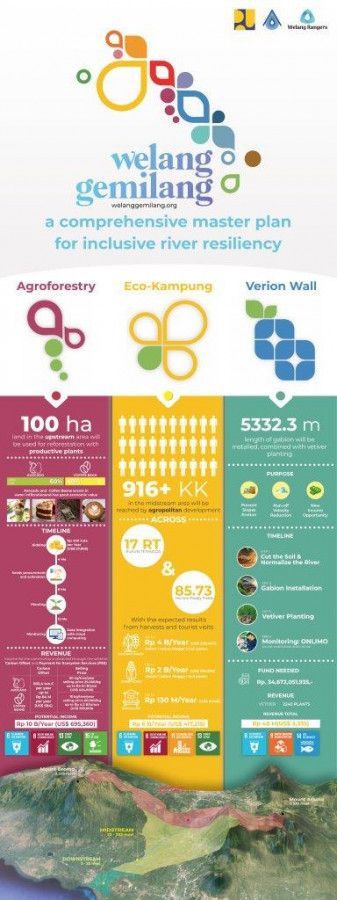
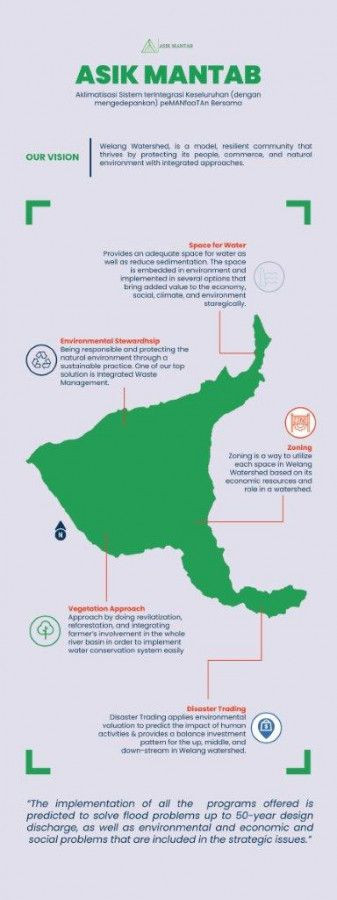
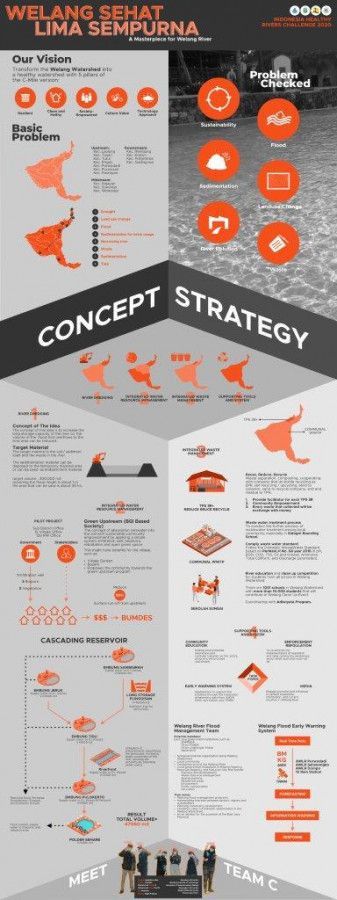
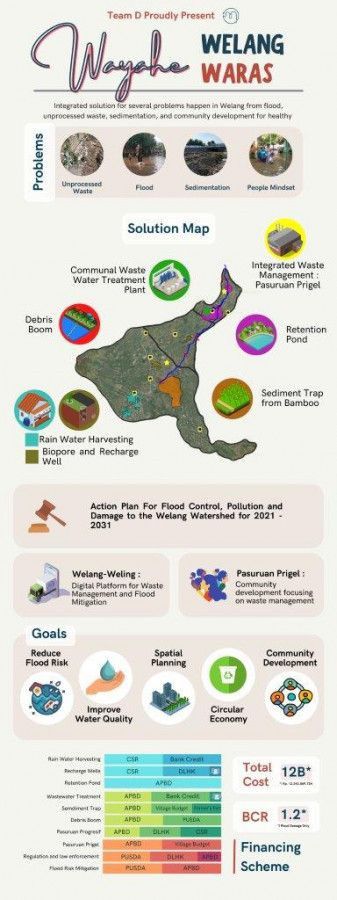
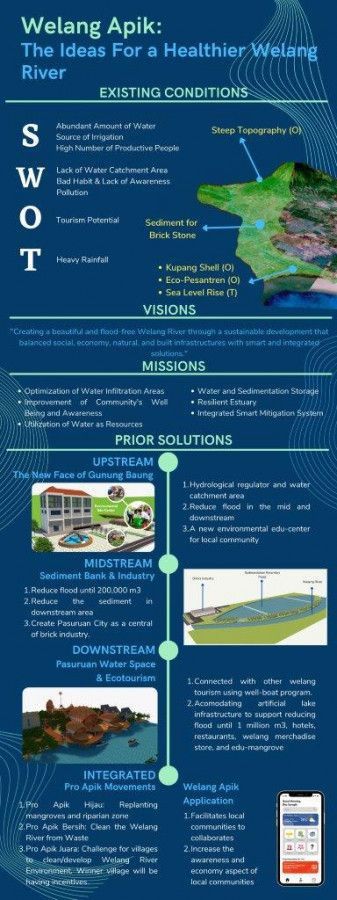
The Winning Team
All of our Young River Leaders did an excellent job pitching their grand designs that focused on integrated and sustainable solutions while not forgetting the importance of how their solutions should be funded. A lot of consideration was taken into account in choosing the winner, however, there was only one team that would emerge as the winning team in this first edition of the Indonesia Healthy Rivers Challenge. The audiences were pleasantly surprised and awed by the creativity, hard work and time each team had put in the last five months.
All in all, the Winning Team title went to Team B “Asik Mantab” (in Bahasa, this is an abbreviation of Aklimatisasi Sistem terIntegrasi Keseluruhan – dengan mengedepankan – peMANfaaTAn Bersama) for their comprehensive management strategy which focused on solving flood gradually, enhancing water resources and water quality through a structural, vegetative and management approaches as well as prioritizing the readiness of each business model.
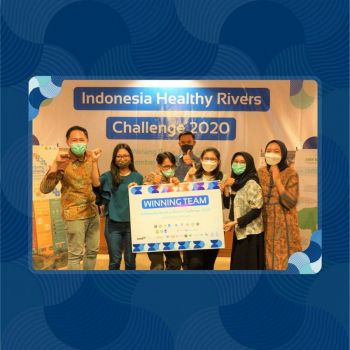
Day 3
As the Challenge came to an end, the Challenge participants and partners visited and explored the Nongkojajar upper catchment where our Young River Leaders were having absolute fun after some memorable months. Fulfilling the commitment to run a safe event by implementing health protocols, we were happy to see the attendees were tested negative based on the swab tests done on the third day.
Despite the Covid-19 pandemic, the Indonesia Healthy Rivers Challenge 2020 was successfully executed while following the health protocols (resulted in no new cases from the event). It was delightful to hear all the brilliant ideas from our Young River Leaders this year, for it was not only fun but also inspirational, educative and hopefully would bring benefits for the integrated development of the Welang River in the future!
We would like to thank all of the participants, mentors, experts and partners who have made this event possible. Special thanks to the Ministry of Public Works and Housing of Republic of Indonesia (Kementerian Pekerjaan Umum dan Perumahan Rakyat), Water Resources Agency of East Java Province (Dinas Pekerjaan Umum Sumber Daya Air Provinsi Jawa Timur) and Partners voor Water (Rijksdienst voor Ondernemend Nederland) for accomodating and supporting the Challenge.
Thank you to our partners for their enthusiasm and support during the Challenge: Witteveen+Bos, Royal HaskoningDHV, RebelGroup, Danone-AQUA, Royal IHC, HZ University of Applied Sciences, University of Brawijaya, IDN Liveable Cities, The Nature Conservancy Indonesia, Perusahaan Umum Jasa Tirta I, Alliance for Water Stewardship – Indonesia and Drainblock.
Big shout out to our mentors: Cut Endah from Danone-AQUA, Weny Hamilton Sihombing from Witteveen+Bos, Slamet Waluyo from Royal HaskoningDHV, Eline Leising from RebelGroup and Liliane Geerling from HZ University of Applied Sciences.
See you at the next Challenge!

